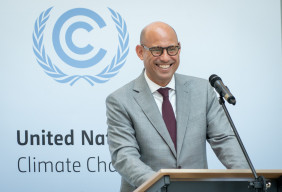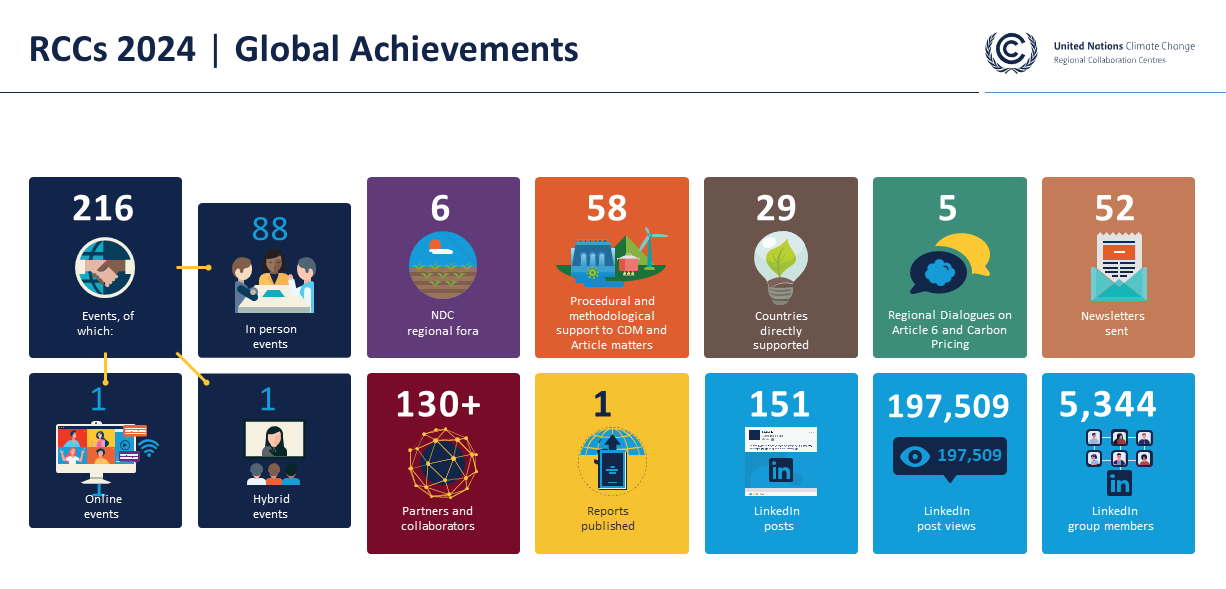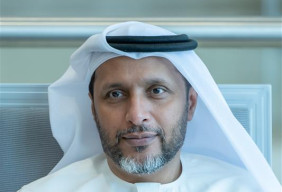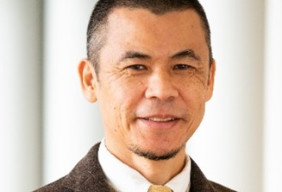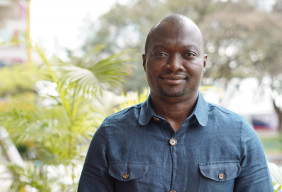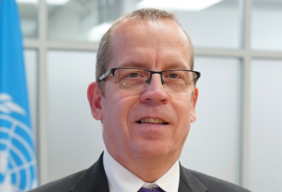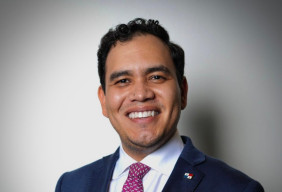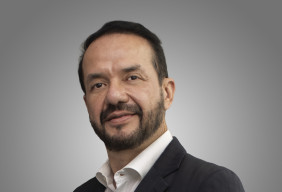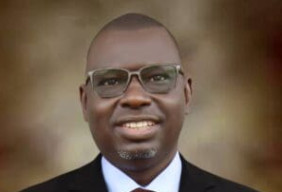Their efforts have primarily focused on technical assistance and capacity building, facilitating access to support for the development and submission of NDCs 3.0 and advancing participation in Article 6 under the Paris Agreement. The RCCs have worked closely with national governments, private sector actors, and multilateral institutions to provide trainings, knowledge-sharing opportunities, and policy guidance tailored to regional needs.
In 2024, the RCCs have strengthened support towards adaptation related issues, including the formulation of implementable National Adaptation Plans (NAPs) and transformational adaptation. The RCCs also supported stakeholders in their endeavors to access climate finance to implement their projects, and to prepare their Biennial Transparency Reports (BTRs) under the Enhanced Transparency Framework (ETF).
This year, the main priorities of RCCs have been to:
- Engage with regional partners to create regional platforms aiming to provide cohesive support to countries in the RCC regions.
- Support countries in developing and implementing their Nationally Determined Contributions (NDCs), and Long-Term Low Emissions Development Strategies (LT-LEDs) through the organization of capacity-building workshops and webinars, direct assistance to countries and on-demand technical support, and the production of knowledge products;
- Support the Article 6 operationalization journey through regional and country specific capacity-building activities, provision of tailored-made technical support to select countries in advancing their Article 6 readiness. This can include institutional framework development as well as information sharing and knowledge products development;
- Support interested countries in advancing the development of domestic carbon pricing instruments;
- Inform and train Parties and the Consultative Group of Expert (CGE) with reporting requirements under the Enhanced Transparency Framework;
- Support countries in the formulation and implementation of National Adaptation Plans (NAPs) through direct country support and regional capacity-building activities, including through in-person training and webinars.
- Facilitate collaboration with civil society, private sector, academia, and other non-state actors to enhance their contributions to climate action and ensure their perspectives are integrated into regional and global climate processes.
A key achievement across all RCCs has been their success in fostering collaborations and partnerships. By strengthening ties with partners including UN Agencies, multilateral and regional organizations alike, and private sector entities, and by coordinating and executing an integrated approach streamlining their respective roles and contributions, the RCCs and all their partners have facilitated more efficient knowledge exchange platforms, increased resource mobilization and streamlined the use of resources, as well as enhanced the implementation of climate strategies.
Looking ahead, it is clear that the RCCs will continue to deepen their engagement, particularly in Small Island Developing States (SIDS) and Least Developed Countries (LDCs), ensuring that all countries have the tools and knowledge necessary to implement their climate commitments effectively and with the ambition required by the climate emergency. The work achieved in 2024 forms a solid foundation for 2025 to deliver on NDC implementation and enhancing climate finance access, including Adaptation innovative financing.
The 2024 RCC Highlights showcase achievements by all six centres, including a presence at the UN Climate Change Conference COP 29 held in November in Baku, Azerbaijan, to provide global access to their regional work. COP 29 was also an opportunity for all RCCs to weave and strengthen partnerships that drive global progress to push the world towards an era of climate literacy, skills, and empowerment for the effective implementation of climate action, as ratified through the Paris Agreement.
